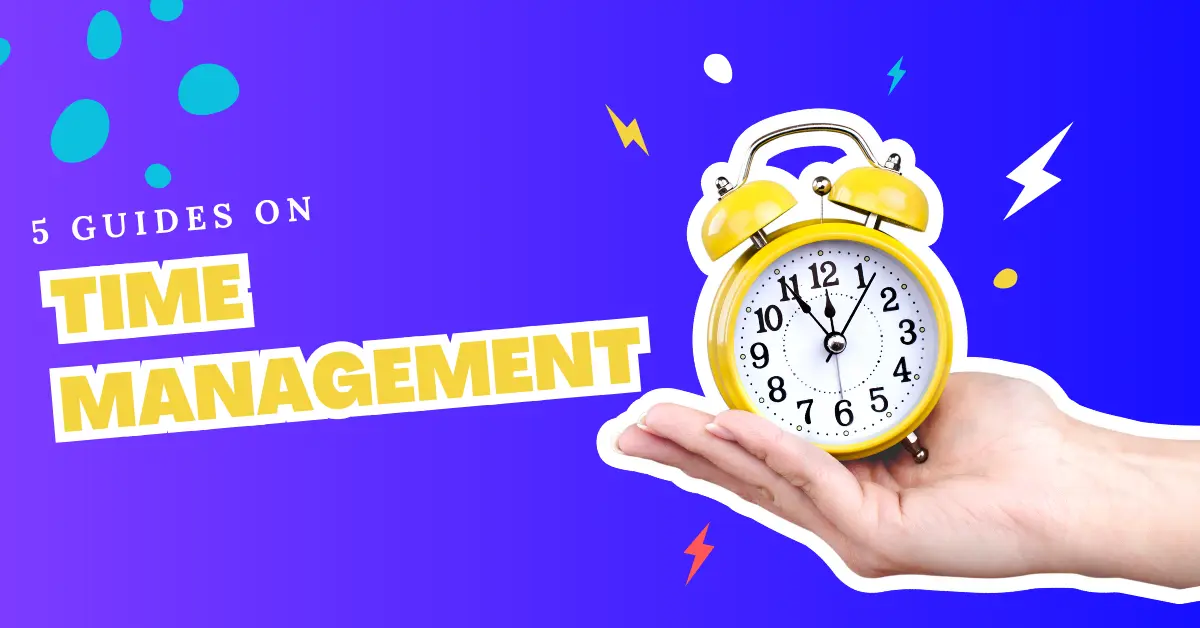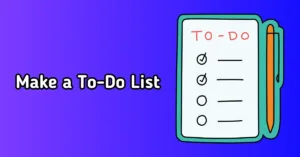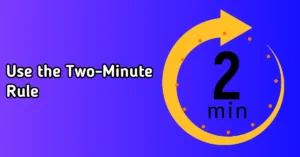
Time management involves the planning and organization of how to allocate your time across various tasks and activities. It helps you work smarter, not harder, allowing you to get more done in less time. Effective guides on time management enable you to prioritize tasks, reduce stress, and improve productivity. By setting clear goals and deadlines, you can focus on what truly matters and avoid distractions. This leads to better work-life balance, increased efficiency, and more opportunities for personal growth. Overall, good time management enhances your quality of life and helps you achieve your dreams.
5 Guides on Time Management
Do you often feel like there’s not enough time in the day? You’re not alone. Many people struggle to get everything done. But with the right time management skills, you can make the most of your hours and be more productive. Here are five helpful guides on time management:
Make a To-Do List

One of the best ways to manage your time is to write down what you need to do. This is called a to-do list. Here’s how to make one that works:
- Write down all your tasks for the day or week.
- Put the most essential tasks at the top.
- Break big tasks into smaller, easier steps.
- Cross off tasks as you finish them.
Making a to-do list helps you remember everything you need to do. It also gives you a clear plan to follow. When you see your tasks written down, it’s easier to focus on what’s important.
Tips for better to-do lists:
- Keep your list short. Too many tasks can be overwhelming.
- Be specific. Rather than “clean home,” write “vacuum living room” or “clean dishes.”
- Update your list regularly. Add new tasks as they come up and remove finished ones.
Remember, a to-do list is a tool to help you, not stress you out. If you don’t finish everything, it’s okay. Move incomplete duties to the next day’s list.
Use the Pomodoro Technique

The Pomodoro Technique is a simple but powerful way to work. It allows you to concentrate on one duty at a time. Here’s how it works:
- Choose a task to work on.
- Set a timer for 25 minutes.
- Operate on duty until the timer rings.
- Take a short 5-minute break.
- After four “pomodoros” (25-minute work sessions), take a longer break of 15-30 minutes.
This technique works well because it breaks your work into manageable chunks. It also gives you regular breaks to rest your mind.
Benefits of the Pomodoro Technique:
- It helps you avoid distractions.
- It makes big tasks feel less overwhelming.
- It reminds you to take breaks, which can make you more productive.
You can use a kitchen timer, a phone app, or a website to time your Pomodoro. Try it out and see if it helps you work better!
Plan Your Day the Night Before

Taking a few minutes each evening to plan for tomorrow can save you a lot of time and stress. Here’s what to do:
- Look at your calendar for tomorrow’s events and meetings.
- Check your to-do list and decide what you need to do tomorrow.
- Note down your schedule for the next day.
- Get things ready (like clothes or lunch) for the morning.
Planning helps you start your day with a clear idea of what to do. It can also help you sleep better because you won’t worry about forgetting something important.
Things to include in your nightly planning:
- Your main goals for the next day
- Any appointments or deadlines
- What you’ll eat for meals
- When you exercise or take breaks
Remember, plans can change. Be prepared to change if something unpredictable comes up. The goal is to have a general outline for your day, not a strict schedule you can’t change.
Use the Two-Minute Rule

The two-minute rule is simple: If a task will take less than two minutes to complete, do it right away. This rule can help you avoid building up a lot of small tasks that clutter your to-do list and your mind.
Examples of two-minute tasks:
- Answering a quick email
- Making a short phone call
- Washing a few dishes
- Filing a document
- Taking out the trash
By doing these small tasks right away, you’ll free up time and mental energy for bigger tasks. You’ll also feel good about getting things done quickly.
Tips for using the two-minute rule:
- Be open about how long a duty will take.
- Don’t let two-minute tasks interrupt important work. Do them during breaks or between bigger tasks.
- If a two-minute task is part of a bigger project, it might be better to wait and do it all at once.
The two-minute rule can help you stay on top of small tasks and feel more in control of your time.
Learn to Say No

One of the hardest but most important time management skills is learning to say no. Many of us take on too much because we want to help or we’re afraid of missing out. But saying yes to everything can leave you with no time for what’s important.
Here’s how to say no effectively:
- Be polite but firm. You can say, “Thank you for thinking of me, but I can’t take that on right now.”
- Don’t give long explanations. An easy “I’m sorry, I don’t have time for that” is adequate.
- Suggest other options if you can. Maybe you know someone else who could help.
- Remember that saying no to one thing means saying yes to something else that matters to you.
Saying no gets easier with practice. Start with small things and work your way up to bigger commitments.
Benefits of saying no:
- More time for your priorities
- Less stress and overwhelm
- Better quality work on the tasks you do take on
- More respect from others as they learn to value your time
Remember, your time is valuable. It’s okay to protect it.
Putting It All Together
Effective time management isn’t about accomplishing more tasks; it’s about focusing on what truly matters to you. By applying these five strategies, you can take charge of your time:
- Create a to-do list to monitor your tasks.
- Utilize the Pomodoro Technique to work in concentrated intervals.
- Organize your day the night before to kickstart your mornings effectively.
- Implement the two-minute rule to quickly handle minor tasks.
- Learn to say no to safeguard your time for what truly counts.
Experiment with these techniques to discover which ones suit you best. You might find that a combination works or just a few. The essential aspect is to identify what helps you feel more in control of your daily schedule.
Keep in mind that time management is a skill that requires practice to improve. Be patient with yourself as you formulate this agility. Over time, you’ll notice that you can accomplish more while feeling less overwhelmed. With these tools, you can maximize your time and concentrate on what truly matters to you.
FAQs
Q: What is time management?
A: Time management refers to the process of planning and controlling how you allocate your time. It enables you to work efficiently, prioritize your tasks, and make the most of each day.
Q: Why is time management important?
A: Good time management is crucial because it boosts productivity and minimizes stress. By organizing your tasks and establishing priorities, you can reach your goals more effectively and have more time for relaxation and personal interests.
Q: How can I improve my time management skills?
A: You can enhance your time management abilities by setting specific goals, developing to-do lists, and prioritizing your tasks. Additionally, reducing distractions and designating specific time frames for activities can help you stay organized and focused.
Q: What are some common time management tools?
A: Typical time management tools include calendars, planners, and task management applications. These resources assist you in scheduling tasks, setting reminders, and monitoring deadlines, making it easier to handle your time efficiently.
Q: What impact does poor time management have on me?
A: Ineffective time management can result in missed deadlines, increased stress levels, and feelings of being overwhelmed. It can also lead to decreased productivity and less time for personal interests, negatively affecting your overall well-being and happiness.
Also Read:
A guide on important skills like cooking, communication, time management, and problem-solving
Tips and strategies for managing time, boosting focus, and staying organized.
References:
https://www.jacr.org/article/S1546-1440(08)00581-4/fulltext
https://www.google.co.in/books/edition/Time_Management_A_Step_by_Step_Guide_to/7XvPDwAAQBAJ?hl=en
https://en.wikipedia.org/wiki/Time_management
Disclaimer: The 5 Guides on Time Management are intended for general informational purposes only. Results may vary based on individual circumstances. We do not guarantee specific outcomes or results from following the tips provided. Always assess what works best for your personal situation.
Related post



